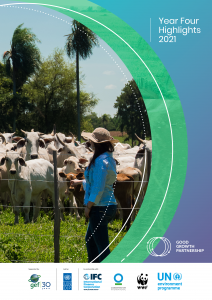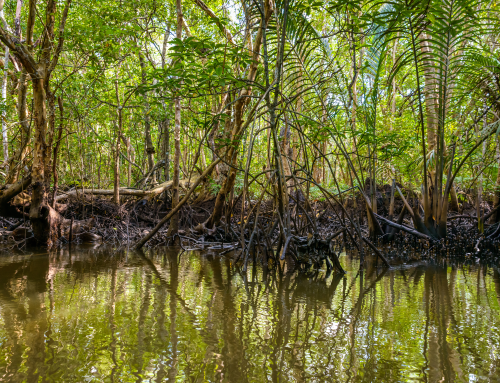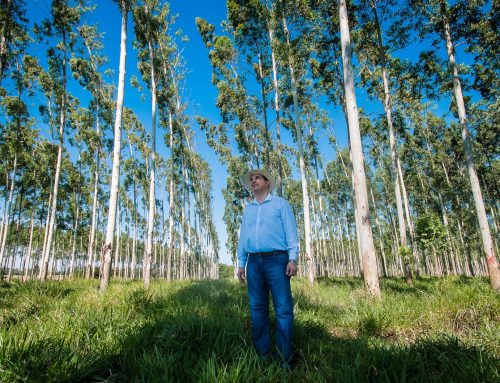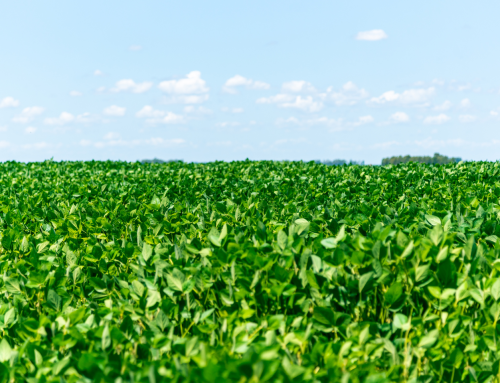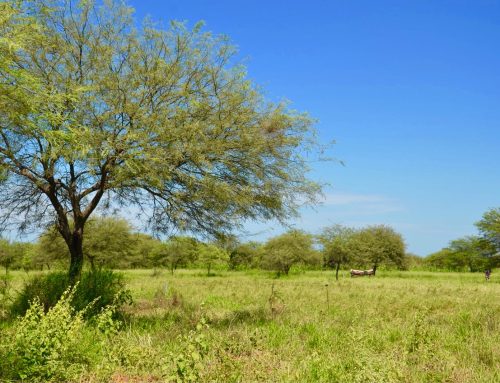This blog was written by Violet Baffour UNDP Deputy Resident Representative/Programme in Liberia.
I was delighted to be asked to host the Good Growth Partnership (GGP)’s event “An Integrated Supply Chain Approach to Transform Commodity Supply Chains.” It’s a topic that’s close to my heart here in Liberia where we work with GGP on palm oil, and I looked forward to a session full of insights from the expert partners that GGP had brought together. I certainly was not disappointed!
GGP’s work in taking deforestation out of commodity supply chains takes on a new urgency as we move on from COP26. The World Leaders’ Summit on “Action on Forests and Land Use” saw over 100 leaders, accounting for more than 86% of the world’s forests, commit to work together to halt and reverse forest loss and land degradation by 2030 in the Glasgow Leaders’ Declaration on Forests and Land Use. UNDP supported the multi-stakeholder processes convened by the Tropical Forest Alliance which led to 28 governments, representing 75% of global trade in key commodities that can threaten forests, signing up to a new Forest, Agriculture and Commodity Trade (FACT) Statement. This statement is part of a Roadmap of actions designed to deliver sustainable trade and reduce pressure on forests, including support for smallholder farmers and improving the transparency of supply chains. All of these commitments are a significant step forward in achieving the Sustainable Development Goals, and now we need to focus on how to put these commitments into action. That’s what I wanted to hear from our panelists.Of course, it’s a huge challenge trying to summarise the wisdom that the Panelists and participants shared. As a guide for our discussion, we used the 5 principles highlighted in the Foreword of GGP’s latest Highlights Report, which also feature in this short video . It was fascinating to hear how the real-life experience of our guests added to our understanding of these principles, so I’ve quoted them extensively below.
The first principle is the call to adopt a systems view. My guest Franklin Jackson, Executive Director of the Association of Liberian Oil Palm Farmers, was clear that this was essential for success in Liberia:
“The National Oil Palm Strategy of Liberia addresses five thematic areas to effect systemic change. These are national standards and certification; the right regulatory framework; a holistic financial mechanism; improving livelihoods; and natural resource management with a proper national land use plan. We have come up with our national Oil Palm Strategy with the sponsorship of GGP and it will be implemented soon”
The second principle is to optimize stakeholder collaboration. Often, we see this need between different stakeholder organisations, Carlos Manuel Rodriguez, CEO and Chairperson of the Global Environment Facility, recalled his efforts to increase stakeholders’ alignment between Ministries inside the Costa Rican government:
“I used to be Minister of Environment three times in Costa Rica, let me tell you, each time that I was in government, my biggest challenge was the Minister of Agriculture, he had a very different vision than the one that we had. What we needed in government was policy coherence. What does policy coherence mean? Well, for me it is something very simple, we need to stop investing in all of those economic activities that destroy the planet, the life supporting systems of the planet. All nations, even the most developed financially or morally, invest on an annual basis, much more resources in activities that contribute to climate change and loss of biodiversity that what they invest in protecting nature. We must change that and understand how programmes such as the Good Growth Partnership have helped and can support countries to set the right policies, because at the end of the day it is a mixture of good market, and good policies.”
Our third principle is to support multiscale multistakeholder collaboration – taking the conversation to every geographical and jurisdictional scale. Once again, Franklin Jackson gave us an example from here in Liberia:
“We decided to map the value chain from producers throughout the entire value chain. The objective here is to have a cross-sector collaborative understanding of oil palm producers and the private sector currently involved in oil palm processing, or purchasing and selling, at all levels. The second key way to address the challenges of effective multi-stakeholder collaboration is to create a Working Group. And we are planning to create a Working Group called the Oil Palm Investor Forum. This Working Group’s ultimate objective will be to stimulate investment in the oil palm sector in Liberia in support of the National Strategy and Action Plan, including involving international buyers and local markets. I’d like to take this forum to thank everyone involved with the GEF and the GGP that have worked tirelessly in Liberia and in other parts of the world to address these thematic areas that you have developed. Thank you very much”.
Fourthly, we focus on activating and linking farmer-centric initiatives. Graciela Miret, Director of Strategic Planning at Paraguay’s Ministry of Environment and Sustainable Development, told us that this aspect was getting more and more important:
“Today, more than ever, productive systems require adjustments to increase productivity and with it, improve the life of producers’ families. This, then leads to investing in natural resource conservation and social aspects needed by the community.
Making changes in productive systems is not an easy task, as it requires a change of paradigm from the producer; accessible financial resources for making investments that lead to improved production; a supply chain that incentivizes producer´s good practices; and public policies that establish the rules to support sustainable productive systems.
We’ve learned that the problem can´t be approached from our unique point of view, but that we have to consider all visions and join forces to achieve a broader impact.”
It’s not surprising that the finance system is at the heart of farmer-centric incentives. Aline Aguiar, Sustainability Team Leader at Rabobank told us:
It’s crucial to keep producers working together with the financial sector. Farmers, traders and other actors in the value chain need to work together with the financial sector. We are the biggest bank in the world of agribusiness and from a sustainability perspective, I don’t see another way to continue as a business. We conduct constant Environmental, Social and Governance (ESG) assessments with our clients, and if we consider that a client must improve their ESG practices, we actively engage this client. We see this is the best way to boost sustainability in the private sector.”
And finally, our fifth principle is that we constantly need to work on our partnerships and across power dynamics to improve effectiveness. Yuvlinda Susanta, Head of Corporate Affairs and Sustainability at PT Super Indo supermarkets, is enthusiastic about this:
Partnership is a very good strategy for dealing with the challenges of sustainable development. But we shouldn’t forget that getting people to work together towards a common goal is never easy. Partnership is often daunting when diverse interests, perspectives and values are at stake. It is not as simple as just sticking people in a room and then hoping for the best. Our interactions with producers and suppliers have taught us that there is no simple success formula. So multi stakeholder partnerships need to reach out to powerful stakeholders to shift power structures in the right directions, and empower other groups helping them to get into a position where they can use power constructively.
I’d like to thank all of my panellists for their insights. We’ve seen how GGP is an excellent proof of concept of how the right incentives and the right collaborative action can move the needle in these systemic challenges. We’ve seen it working in Brazil, Paraguay, Indonesia and certainly here in Liberia. What’s next? We should be ambitious, moving forward to deepen our impact in the 4 countries and take this integrated approach to new countries that also struggle with these challenges as we work to transform the COP26 commitments into action.
Violet Baffour
November 2021

